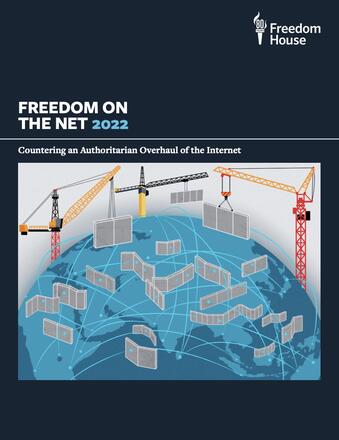
Authoritarian regimes are actively working to fragment the open internet into controlled and repressive segments, leading to a 12th consecutive year of declining global internet freedom. This is characterized by increased digital repression in countries like Russia, Myanmar, Libya, and Sudan, with record levels of online censorship, website blocking, and crackdowns on free expression. The actions of these governments are not the sole cause of this fragmentation; some are intentionally creating domestic digital spaces dominated by state narratives, while others inadvertently contribute to these barriers while addressing disinformation and cybercrimes. This trend poses a significant threat to fundamental rights, especially for those in authoritarian regimes or weakening democracies, affecting freedom of expression, access to information, and privacy.
The paper’s key findings:
- In 2022, global internet freedom has decreased for the 12th consecutive year, with significant declines in countries like Russia, Myanmar, Sudan, and Libya.
- Many governments worldwide are breaking apart the open internet to create more controllable online spaces.
- China remains the worst country for internet freedom for the eighth consecutive year, with increased censorship and control, even compelling platforms to promote CCP ideology.
- A record 26 countries have seen improvements in internet freedom, driven by civil society efforts and collective actions against online shutdowns.
- Internet freedom improved slightly in the United States, but challenges persist, including the absence of a federal privacy law and the spread of online disinformation.
- Authoritarian states aim to control the internet, posing a threat to human rights. In response, a coalition of democratic governments has increased the promotion of online human rights, but faces challenges within their own countries.
The content of this article can be used according to the terms of Creative Commons: Attribution-NonCommercial 4.0 International (CC BY-NC 4.0) . To do so use the the wording "this article was originally published on the Resource Centre on Media Freedom in Europe" including a direct active link to the original article page.

